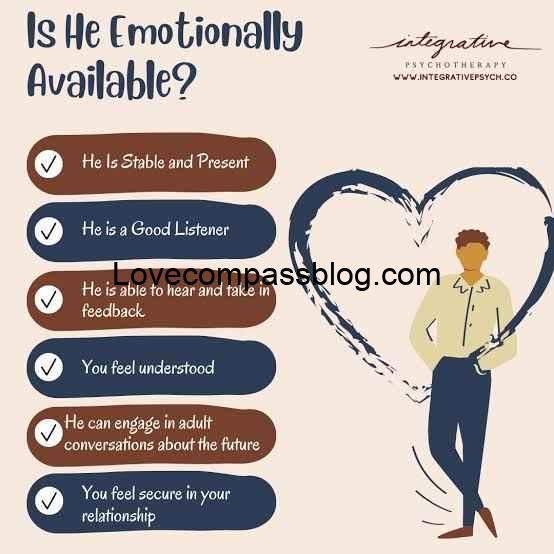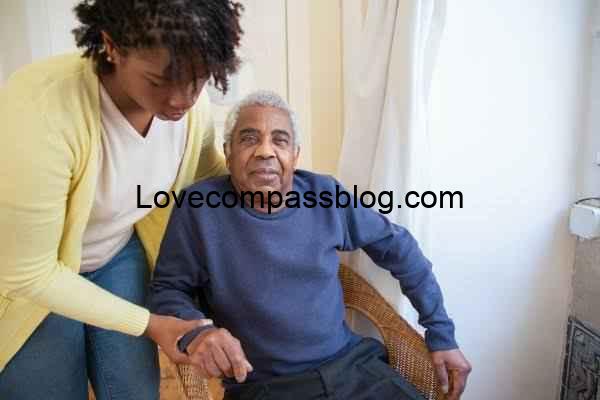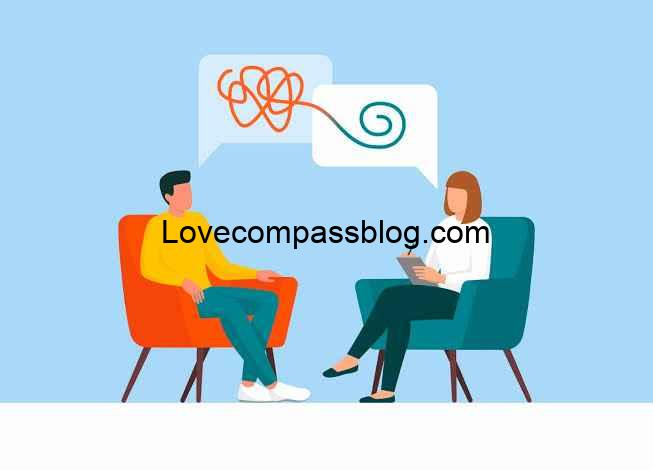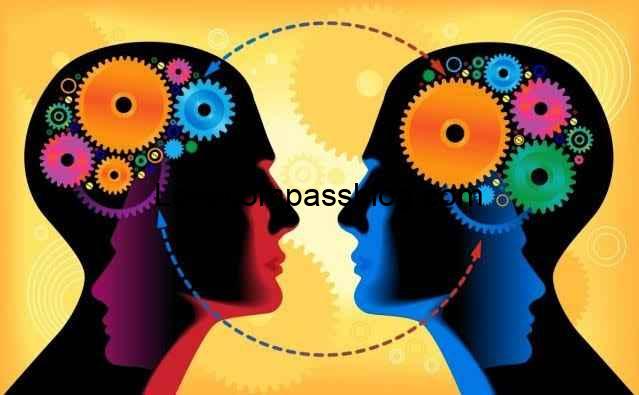How to Support Your Partner Through Loss and Grief

Losing someone is one of the hardest experiences anyone can face. When your partner is grieving, it can be challenging to know what to do or say to ease their pain. You want to help, but sometimes, the enormity of their sorrow makes you feel powerless. It’s important to remember that your role is not to fix their grief but to be a comforting presence during one of the darkest times in their life.
Supporting a grieving partner requires patience, empathy, and understanding. Grief is not a one-size-fits-all experience, and each person’s journey is unique. In this guide, we’ll explore effective ways to support your partner through grief and loss, providing both emotional and practical help. Whether you’re navigating this path for the first time or trying to be more supportive, the following strategies will help ensure that your partner feels heard, seen, and loved.
Grief and Loss

Before offering support, it’s essential to understand that grief is a deeply personal and multifaceted experience. The way one person mourns may be vastly different from how another does. While there are universal patterns of grief, each individual’s reaction depends on their relationship with the person they lost, their emotional resilience, and their personal coping mechanisms.
The five stages of grief—denial, anger, bargaining, depression, and acceptance—were originally outlined by psychiatrist Elisabeth Kübler-Ross. However, it’s crucial to understand that these stages are not experienced in a linear fashion. Some individuals may move back and forth between stages, while others might skip some stages entirely. Others may appear to recover quickly, only to be struck by deep sadness months later.
In addition to emotional pain, grief manifests itself in physical and psychological symptoms. Physical signs include fatigue, headaches, difficulty sleeping, or changes in appetite. Psychological symptoms might involve a sense of disbelief, numbness, confusion, or even guilt. As a partner, recognizing these signs of grief can help you gauge when your loved one may need more support or space.
Emotional Availability and Communication During Grief

When someone is grieving, they often feel isolated in their pain. One of the most impactful ways you can help your partner is by being emotionally available. Emotional availability means making yourself accessible—both physically and emotionally—so your partner knows that they can lean on you during their hardest moments.
This doesn’t mean you need to have all the answers or offer solutions. In fact, often the best thing you can do is simply listen without judgment. Grief makes people vulnerable, and your partner may express feelings of anger, guilt, or deep sadness. It’s important to let them know that these feelings are valid, even if they’re difficult for you to hear.
- Listening actively: When your partner opens up about their grief, listen carefully without interrupting. Nod to show that you’re following along and offer small acknowledgments, like “I understand” or “I’m here.” Avoid the temptation to respond with advice or solutions. The goal is to validate their emotions rather than fix the problem. Phrases like, “I can’t imagine how hard this is for you, but I’m here,” are far more comforting than trying to minimize or rationalize their pain.
- Navigating emotional boundaries: Your partner might not always want to talk about their feelings. It’s crucial to respect their boundaries. Some days they may need more space to process their grief internally, while on other days, they may want to talk for hours. Ask them what they need, and adjust accordingly. Communication during grief requires you to be adaptable and sensitive to their fluctuating emotions.
- Supporting without overwhelming: While it’s essential to be present, sometimes being too available or offering constant reassurances can become overwhelming for your partner. Try to find a balance—offer support but give them the room they need to grieve in their own way.
Grief is a complex journey, and by navigating loss together, you can strengthen your relationship. Show them that you’re in this together, even when words aren’t enough.
Practical Support for Your Partner

Grieving can be emotionally draining, but it can also take a toll on someone’s ability to manage their day-to-day life. During this time, offering practical support can make a world of difference for your partner, especially when even simple tasks feel overwhelming.
- Daily tasks: Offer to help with daily chores like grocery shopping, cooking, cleaning, or laundry. These everyday tasks may seem insignificant, but they can be burdensome for someone struggling with grief. Sometimes, the simple act of taking care of life’s necessities allows your partner the space they need to focus on their emotions.
- Funeral arrangements: If your partner is tasked with organizing a funeral or memorial service, it can be an incredibly daunting and emotional process. Help by making calls, coordinating logistics, or contacting family and friends on their behalf. Taking on these responsibilities can relieve them of additional stress during an already overwhelming time.
- Physical comfort: Simple gestures like making them a cup of tea, sitting next to them, or even a hug can provide immense comfort. Providing comfort through physical presence and practical actions can sometimes speak louder than words.
- Encouraging emotional expression: Let your partner know that it’s okay to cry, yell, or express whatever they’re feeling. Some people bottle up their emotions because they fear being judged or burdening others with their pain. Make it clear that you are a safe space where they can feel free to let those emotions out without fear of judgment.
Coping Mechanisms and Resilience Building

As your partner works through their grief, they’ll need to develop healthy coping mechanisms to manage their emotions over time. While it’s important not to rush this process, you can gently encourage them to adopt strategies that may aid in their healing.
- Engaging in self-care: Encourage your partner to take small steps toward taking care of themselves physically and emotionally. This might mean going for a walk, cooking a healthy meal, or engaging in a hobby they once enjoyed. These small acts of self-care can help create a routine and foster a sense of normalcy.
- Coping with loss: Each person grieves differently, but some helpful coping strategies include journaling, practicing mindfulness, or speaking with a therapist. While these activities won’t erase the pain, they can help your partner process their emotions in a more manageable way.
- Resilience in grief: It’s important to acknowledge that resilience doesn’t mean forgetting or “getting over” the loss. It’s about learning to live with the pain and finding ways to continue life despite it. Encourage your partner to take each day as it comes, reminding them that grief is not a race. Small, consistent efforts toward recovery can slowly build emotional strength.
- Mental health during grief: If your partner is struggling to cope with the intensity of their emotions, suggest professional support, such as grief therapy or counseling. Therapists can provide a structured space for grieving individuals to explore their feelings, develop coping mechanisms, and find a path toward healing. Additionally, grief support groups allow individuals to connect with others who are going through similar experiences, helping them feel less alone in their grief.
Emotional Healing and Grief Recovery

Healing from grief takes time, and there is no set timeline for when someone should feel better. Partner emotional healing is a gradual process, often marked by moments of progress and setbacks. Your partner may seem okay one day and be deeply affected the next. As their partner, it’s essential to allow them the space and time they need to heal emotionally without pressure.
- Partner loss recovery: Recovery from loss doesn’t mean forgetting the person who passed away. For many people, grief recovery involves finding ways to keep the memory of their loved one alive while learning how to live without them physically present. Encourage your partner to engage in rituals or activities that help them honor the person they lost—whether that means visiting a grave, creating a memory book, or setting aside time to reflect on their life.
- Healing through companionship: Your presence can provide immense healing, even when no words are exchanged. Grief often feels isolating, but by simply being there for your partner, you remind them that they’re not alone. Over time, your continued love and companionship will help them feel more grounded as they heal.
- Finding closure: Closure is often misunderstood as an endpoint to grief, but in reality, it’s more about accepting the loss and finding ways to live with it. Help your partner recognize that closure doesn’t mean the pain will disappear, but rather that they’ll learn to carry the loss in a way that feels more manageable over time.
Addressing Relationship Dynamics During Grief

Grief can put immense pressure on even the strongest relationships. It’s not uncommon for a grieving partner to withdraw or become emotionally distant as they process their pain. Understanding how grief can impact relationship dynamics will help you support your partner while navigating the changes it brings.
- Grief and intimacy: The emotional toll of grief can sometimes result in a loss of physical or emotional intimacy. Your partner may need space or find it difficult to connect with you in the ways they used to. This is a normal part of the grieving process. Grieving in relationships requires flexibility, as emotional and physical intimacy may be temporarily altered. Respect their need for space but continue to express your love and support in other ways, whether through kind words, thoughtful gestures, or offering quiet companionship.
- Navigating changes in the relationship: Loss can change the way a couple interacts. Loss and relationship dynamics may shift as grief temporarily disrupts the emotional balance within the relationship. You might notice that your partner becomes more withdrawn or, conversely, more dependent on you for support. Recognize that these shifts are part of the process, and with time, the equilibrium will return. Patience and understanding are key during this period. Encourage open communication, where both of you can express your feelings, concerns, or fears about how the loss is affecting your relationship.
- Strengthening the relationship through grief: Grieving together can either create distance or bring a couple closer. By showing unwavering support and demonstrating empathy, you have the opportunity to build an even deeper connection with your partner. Be proactive in fostering trust and compassion during this time. Even in moments of frustration or exhaustion, remind yourself that this is temporary, and your consistent support will help solidify the bond between you.
How to Support Your Partner Long-Term

Grief doesn’t have an expiration date, and it’s essential to continue offering support even after the initial shock of the loss has passed. Sometimes, loved ones stop reaching out after the funeral or memorial service, assuming that the worst is over. However, grief is often more intense in the weeks and months after the immediate flurry of support fades. Here’s how to offer long-term grief support to your partner:
- Remember significant dates: Anniversaries, birthdays, or holidays can trigger renewed grief. Mark these dates on your calendar, and be mindful of how they might affect your partner. You don’t need to bring them up if your partner seems fine, but if you notice signs of sadness or withdrawal, gently acknowledge the significance of the day and offer your support. Sometimes, a simple message like, “I know today might be difficult, and I’m here for you,” can be deeply comforting.
- Checking in regularly: Grief comes in waves, and while your partner might appear to be doing well one day, they could feel overwhelmed the next. Make it a habit to check in with them periodically, even long after the loss has occurred. Ask how they’re feeling and whether there’s anything they need—whether emotionally or practically.
- Supporting personal growth and healing: Over time, your partner may begin to rediscover their passions or interests that were put on hold during their grief. Encourage them to pursue these activities without feeling guilty. Personal growth after loss is an important part of healing, and showing your support for their renewed sense of purpose will further strengthen your relationship. Offer to join them in these activities or give them the space to explore new or old hobbies on their own.
Seeking External Support: Grief Counseling and Support Groups

As much as you want to be the primary source of support for your grieving partner, sometimes professional help can be incredibly beneficial. Grief counseling provides a safe space for your partner to explore their emotions with the guidance of a trained therapist. It can be especially useful for those who are struggling to move forward or are experiencing complicated grief.
- When to suggest professional help: If your partner’s grief is overwhelming their daily life or mental health, such as causing severe depression, anxiety, or inability to function at work or home, it might be time to gently suggest professional grief counseling. Approach this subject with care, emphasizing that there is no shame in seeking help. Reassure them that therapy is not a sign of weakness but a tool to aid in their healing.
- Exploring grief support groups: Grief support groups can also offer an invaluable sense of community. Sometimes, it helps to talk to others who are going through similar experiences. These groups provide an outlet for shared grief, where people can discuss their feelings without fear of judgment. Encourage your partner to explore these options if they feel comfortable, and let them know that they don’t have to face their grief alone.
Conclusion
Grieving is a complex, deeply personal process, and helping your partner through it requires patience, compassion, and unwavering support. While there is no perfect way to navigate this journey, simply being present, offering a listening ear, and respecting their emotions will go a long way toward helping them heal.
Now that you understand the critical steps in supporting a partner through loss, you can help them cope with their grief in meaningful and lasting ways. Be gentle with yourself, too, as you support them—grief can be difficult for both partners, but it can also bring you closer together, deepening your bond. If your partner needs more structured support, don’t hesitate to encourage professional counseling or a grief support group.
Remember, your role isn’t to take away their pain but to walk beside them through the storm until they find peace again.





